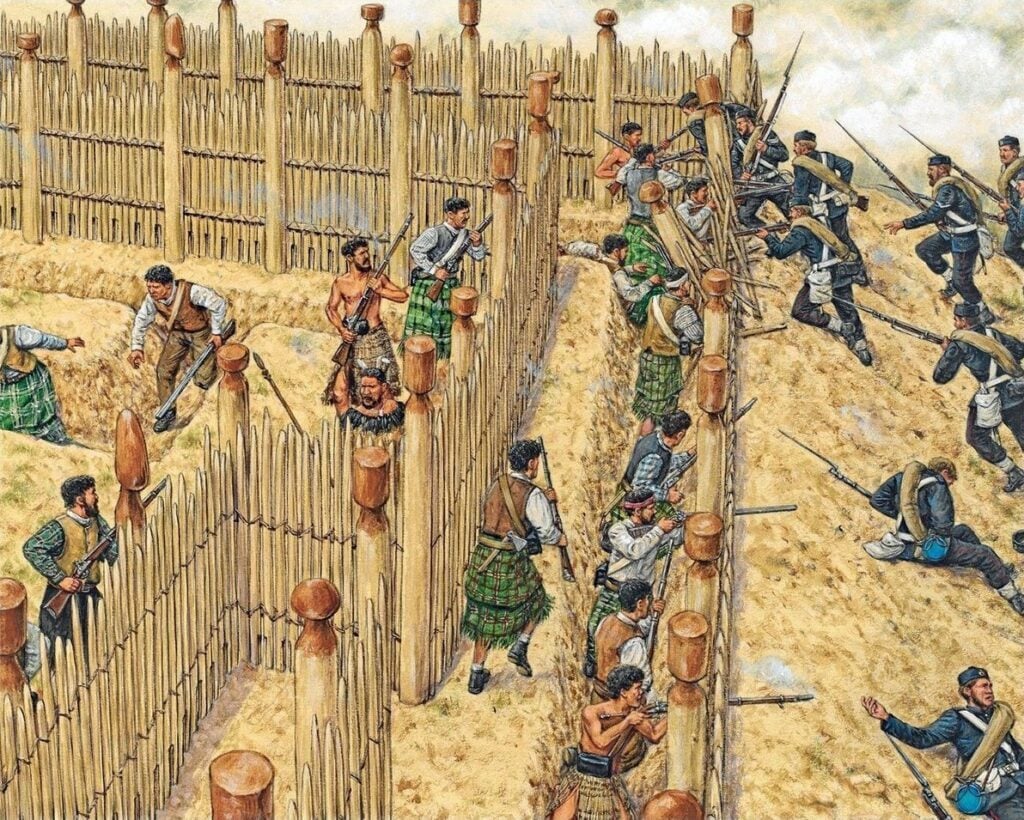This is quite fascinating. I've obviously not been educated very well growing up because this is the first time I've seen reference to what I assume are Scots supporting the Maori. To the internets!
Illustrations of history
This magazine is for sharing artwork of historical events, places, personages, etc. Scale models and the like also welcome!
Generally speaking, actual photos of a historical item should go to !historyartifacts@lemmy.world
Photos of ruins should go to !historyruins@lemmy.world
Photos of the past should go to !HistoryPorn@lemmy.world
Believe that's just Maori grass skirts. As for the more European clothing, at this period I believe Britain was already flooding New Zealand with cheap consumer goods (like mass-produced textiles).
I guess I should have looked closer 😐 (edit - typo)
The artist really makes it look like plaid, especially at a glance, it's an understandable mistake!
Presumptuous of the British to go up against a people so acustom to battle tactics they independently invented a version of trench warfare without any European influence.
British claim white people to be the master race destined to rule because of their supposed intelligence
British conquer the Maori
Maori still want to fight, but for the British
The British, who supposedly believe in 'martial races', refuse to let the Maori fight for them for some 60 years, until WW1
The kind of 'brilliance' only possible from spending too many long days in the rain-besotted British isles.
British conquer the Maori
Well, no: Treaty of Waitangi.
As some words in the English treaty did not translate directly into the written Māori language of the time, the Māori text is not an exact translation of the English text, particularly in relation to the meaning of having and ceding sovereignty.[11][12] These differences created disagreements in the decades following the signing, eventually contributing to the New Zealand Wars of 1845 to 1872 and continuing through to the Treaty of Waitangi settlements starting in the early 1990s.
During the second half of the 19th century Māori generally lost control of much of the land they had owned, sometimes through legitimate sale, but often by way of unfair deals, settlers occupying land that had not been sold, or through outright confiscations in the aftermath of the New Zealand Wars. In the period following the New Zealand Wars, the New Zealand government mostly ignored the treaty, and a court judgement in 1877 declared it to be "a simple nullity".
The result is the same, but it was a battle of politicians and shady lawyers rather than force of arms. I'm not saying it's better to lose your rights and property that way than on a battlefield, but calling it a conquest makes it seem like some kind of achievement.
The result is the same, but it was a battle of politicians and shady lawyers rather than force of arms.
Okay but it explicitly mentions the New Zealand Wars which very much were done by force of arms.
